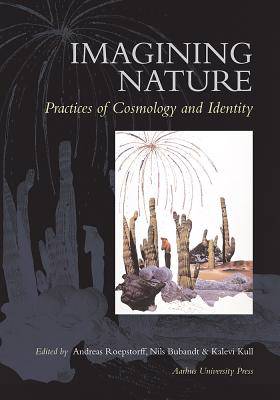
- Afhalen na 1 uur in een winkel met voorraad
- Gratis thuislevering in België vanaf € 30
- Ruim aanbod met 7 miljoen producten
- Afhalen na 1 uur in een winkel met voorraad
- Gratis thuislevering in België vanaf € 30
- Ruim aanbod met 7 miljoen producten
Zoeken
€ 44,45
+ 88 punten
Omschrijving
During the last decade, many social scientists have sought to show that nature is not an eternal constant but an intrinsically unstable concept - a historical, cultural and social construct with powerful emotional, moral and political connotations. Imagining Nature sets out to explore some of the implications of and lacunae in this recent push to denaturalise nature. But rather than asking, What is nature? as many academic writers have been doing, the contributors here ask, How is nature established as an entity? Through what processes and practices does nature achieve reality? The editors provide a synthetic introduction to the dozen contributions which comprise the volume. Of particular interest is their account of how the dismantling of nature as an unquestioned given, echoes and was triggered by a similar dismantling of culture as an anthropological concept. The book's first half, Cosmologies, focuses on ways the practices of nature are embedded in overarching conceptual worldviews. Papers range from a sweeping critique of how neo-Darwinian biology, cognitive psychology and cultural theory have colluded to create the dominant narrative of human nature today, to an examination of Estonian wooded meadows as a mosaic of nature and culture that supports high diversity in both. Other ways to reconcile traditional and modern cosmologies emerge in comparative studies of economists and Algonquin hunter-gatherers, Danish biologists and Inuit fishermen. Chapters in the second half illustrate some of the means by which identity unfolds and becomes established in interacting with and imagining nature. The chapters examine nature and identity in the national mythologies of Scandinavia and Germany; two Fulani status groups in Burkina Faso; the confrontational Sami community of Manndalen, Norway; the spatial world of the Tsaatang nomads in Mongolia; and two neoclassic houses by Le Corbusier and Wright. While the individual contributions here will certainly interest specialists in the particular fields they represent, Imagining Nature is broadly interdisciplinary in appeal, and it is especially recommended to anyone intrigued by recent constructivist debate and the multiplying conceptions of nature in the social sciences.
Specificaties
Betrokkenen
- Auteur(s):
- Uitgeverij:
Inhoud
- Aantal bladzijden:
- 300
- Taal:
- Engels
Eigenschappen
- Productcode (EAN):
- 9788772889450
- Verschijningsdatum:
- 1/05/2003
- Uitvoering:
- Paperback
- Formaat:
- Trade paperback (VS)
- Afmetingen:
- 165 mm x 245 mm
- Gewicht:
- 625 g

Alleen bij Standaard Boekhandel
+ 88 punten op je klantenkaart van Standaard Boekhandel
Beoordelingen
We publiceren alleen reviews die voldoen aan de voorwaarden voor reviews. Bekijk onze voorwaarden voor reviews.











